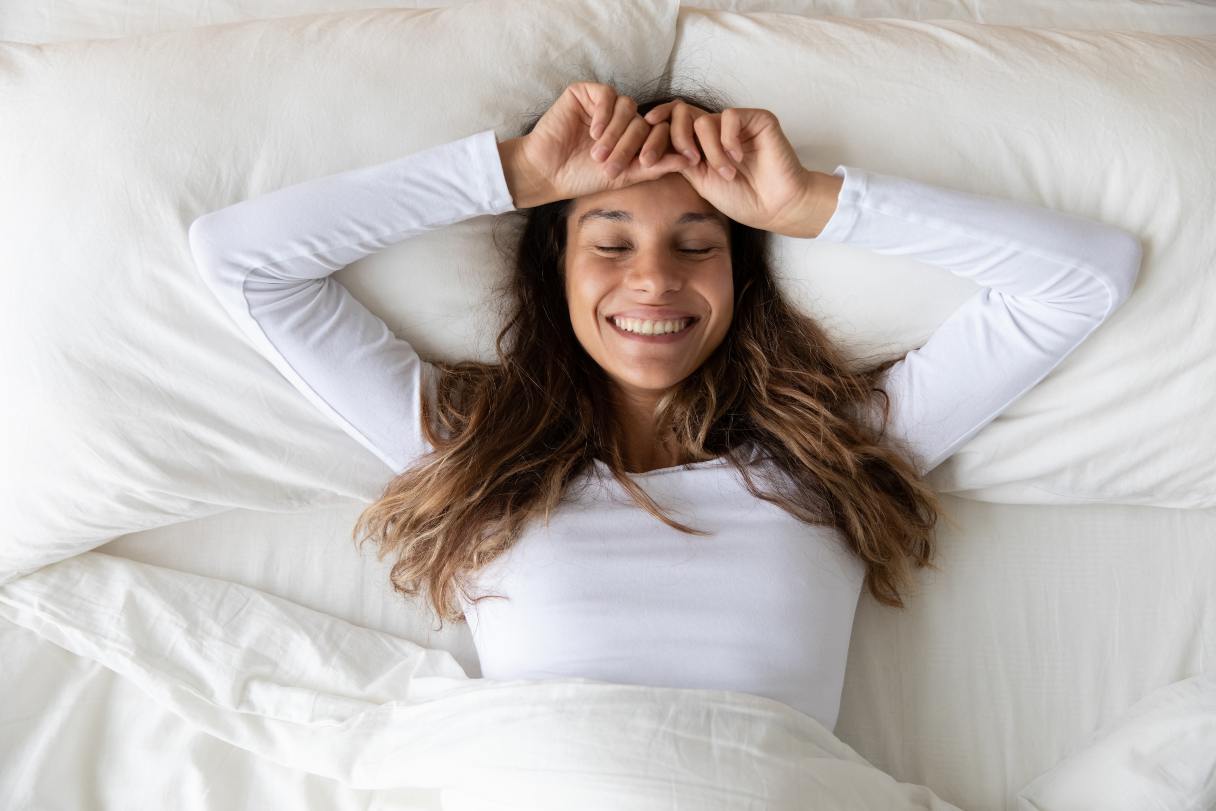Sleep apnea is a serious condition that affects 6 million Americans, and many more cases go undiagnosed.1 While some people can treat the condition with mouthpieces or breathing devices like CPAP machines, others may require surgery to get better.2 It's important not to ignore your sleep apnea symptoms because long-term cases can lead to serious health complications.1
Treatment — especially if surgery is required — can be expensive. But first, you'll need to know if you have sleep apnea and what treatment is best for you. This guide will help you get started.
What Is Sleep Apnea?
Sleep apnea is a disorder that causes your breathing to stop and start repeatedly while you're asleep. There are primarily three types of sleep apnea:1
- Obstructive sleep apnea (OSA) is the most common and occurs when airflow is blocked, causing an interruption in breathing.
- Central sleep apnea occurs when the brain doesn't send proper signals to the muscles that control breathing.
Symptoms
Symptoms of sleep apnea can include:1
- Snoring
- Morning dry mouth
- Headaches
- Gasping for air while you're asleep
- Insomnia
- Excessive tiredness during the day
Sleep apnea can contribute to other serious health issues, including high blood pressure, stroke, diabetes, heart disease, kidney disease and more.2
To diagnose sleep apnea, your doctor may send you to a sleep specialist who will conduct either an at-home sleep test or a sleep study at an official sleep center.1 If you do have sleep apnea, the sleep specialist will then discuss treatment options with you.
Non-Surgical Treatments for Sleep Apnea
Often, surgery isn't the first treatment considered for sleep apnea. Your doctor might initially suggest other options:
- An oral appliance may be used for milder or moderate cases. The cost can range from $2,500 to $4,200.2
- A continuous positive airway pressure (CPAP) machine to wear while you sleep. About 33 million U.S. adults use a CPAP machine.1 The cost can range from $300 for a low-end device to $1,300 for a high-end travel device.2
- A bilevel machine provides a more sophisticated form of CPAP therapy and may range from $875 to $4,500, depending on the type.2
Sleep Apnea Surgery Options
If surgery is required, different options are available depending on how severe the disorder is and the patient's overall health. Your doctor will help determine which of the following options is best for you.
- Uvulopalatopharyngoplasty (UPPP) is the most commonly used surgery for OSA. Surgeons eliminate tissue behind the tongue and shorten the soft palate. Success rates are 16% to 83%, and recovery time can take several weeks.3
- Laser-assisted uvulopalatoplasty (LAUP), where a laser is used to remove parts of your palate's soft tissue, can be a less invasive alternative to regular UPPP, especially when soft palate stiffening is needed. Recovery time also tends to be quicker. Your doctor can advise if it's a good alternative for you.4
- Nasal surgery is a more minor surgery that your doctor may recommend.2
- Lingualplasty, also known as lingual tonsillectomy, is a surgical procedure that decreases the size of your tongue to help enlarge the airway. It is used in milder cases and sometimes in combination with UPPP.3 Recovery can take a few weeks.5
- Maxillomandibular advancement (MMA) is a procedure where your jaw is broken and reset so it can be moved forward to help enlarge your airway. Patients experience an 86% success rate, and recovery time can take up to two months.3
- Hypoglossal nerve stimulation involves a device implanted in your chest to stimulate your hypoglossal nerve. Recovery time is a few days.3
- Palate implants are polyester rods, also known as pillar implants, that are permanently inserted into your soft palate to stiffen it, reducing the chance it will block the airway. This is done in the office with a quicker recovery.3
- Tracheostomy involves creating an opening in your neck that's left uncovered while you sleep. It bypasses the obstruction area and is only recommended as a last resort.3 Recovery is 10 to 14 days.6
Sleep Apnea Surgery Costs
Sleep apnea surgery costs can range from less than $10,000 up to $100,000 or more.2 Here's a sampling of the costs of some types of sleep apnea surgery to give you an idea of what to expect.
| Type of surgery | Average cost |
|---|---|
| Nasal surgery | Up to $10,0002 |
| Throat surgery | Up to $10,0002 |
| Maxillomandibular advancement | $80,000 to $100,0002 |
| Hypoglossal nerve stimulation | $30,000 to $40,0002 |
| Palate implants | $6007 |
The exact cost will vary depending on the region where you're having your surgery, your insurance, the surgical center you use or any complications or post-treatment care needed.
Does Insurance Cover Sleep Apnea Surgery?
Health insurance might cover sleep apnea surgery like UPPP, but you may need to meet certain requirements first. For example, Medicare requires that your sleep apnea be moderate to severe, blocking part of your airway and you've tried less invasive treatments like CPAP machines first.8
Just how much your insurance will cover depends on many factors including your plan and provider, your annual deductible, copay, out-of-pocket maximums, as well as whether you are seeking services in or out of network.
Managing Health and Wellness Costs With the CareCredit Credit Card
If you are looking for an option to help manage your health and wellness costs, consider financing with the CareCredit credit card. The CareCredit credit card can help you pay for the care you want and need and make payments easy to manage.* Use our Acceptance Locator to find a provider near you that accepts CareCredit. Continue your wellness journey by downloading the CareCredit Mobile App to manage your account, find a provider on the go and easily access the Well U blog for more great articles, podcasts and videos.
Your CareCredit credit card can be used in so many ways within the CareCredit network including vision, dentistry, cosmetic, pet care, hearing, health systems, dermatology, pharmacy purchases, and spa treatments. How will you invest in your health and wellness next?
Author Bio
Stephanie Dwilson specializes in science journalism, breaking news and animal health and is a business owner, non-practicing attorney and writer.








